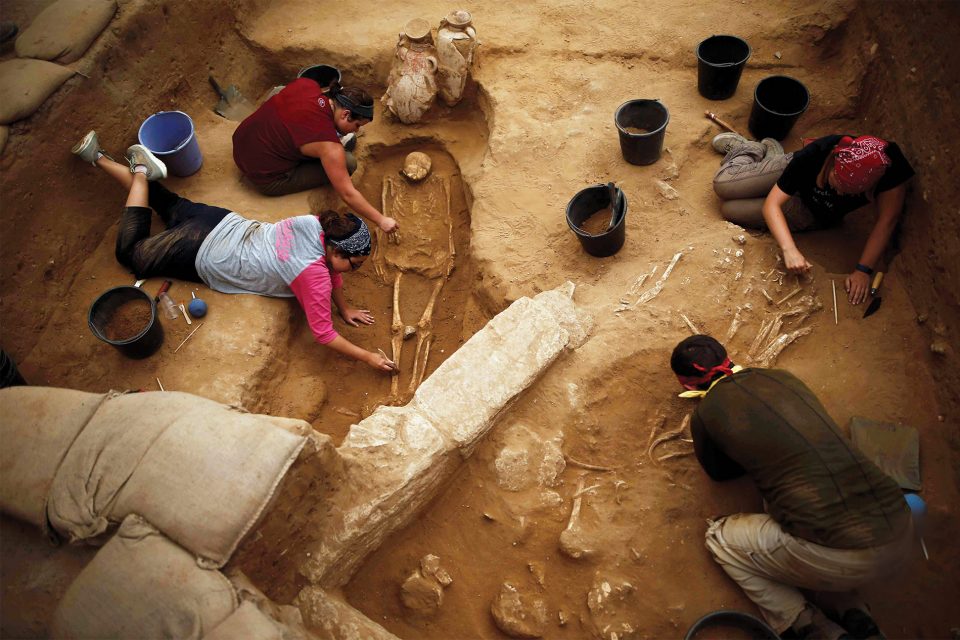Nearly anyone who attended Sunday school as a child has heard about the Philistines.
One of Israel’s greatest enemies, especially in the period of the judges and the united monarchy, the Philistines are best known as a people who harassed Israel, encroached on its territory and at times led God’s people astray to worship foreign gods. The devious Delilah and the giant Goliath are the two best known Philistines in the Bible.
Most scholars have long been confident that the Philistines came to Canaan from the Aegean. Archaeological excavations of the five major Philistine cities—Gaza, Ashkelon, Ashdod, Eron and Gath—have revealed artifacts that support that claim, as do ancient writings from Egypt and Assyria.
But the Philistines’ specific origins have remained fuzzy, and for nearly a century, archaeologists have believed that if they could find a Philistine cemetery, the picture of who the Philistines were could become clear. And now, the discovery of a large-scale Philistine cemetery just outside the walls of ancient Ashkelon may do just that, helping us to understand more about both the origins and the lives of Israel’s infamous enemies.

Daniel Master, professor of archaeology at Wheaton College, excavated Ashkelon for 25 years as co-director of the Leon Levy Expedition to Ashkelon. The expedition worked at the site from 1985 until last summer, and in the summer of 2013 workers uncovered a cemetery that ultimately yielded the remains of more than 200 people. Expedition leaders believe as many as a thousand more bodies could remain, if the cemetery is as large as they think it might be.
The expedition also found houses and marketplaces at Ashkelon, Master told Decision. “But then to find the people themselves, now we can see a lot of things about their life history that had been lost,” he said.
Now, with the excavation no longer active, researchers from around the world are studying the remains and artifacts that were uncovered at the site. “We continue to do more advanced studies of the artifacts themselves that are going to help us add nuance to the things we’ve said,” Master said. “We can do studies of the diseases present in the bones and studies of where people are from to get a better sense of how their lives were lived.”
The chief value of the Ashkelon discovery is that it helps us gain a fuller understanding of who the Philistines were and what they were like. For one thing, although modern usage of the word Philistine often means someone who is uncouth, uncultured or barbaric, the excavation shows that the Philistines were far from that.
“Their art is very interesting,” Master said, “and the things they produced are in many cases quite beautiful. … The Israelites were told not to be like the Philistines—not because the Philistines were unsophisticated, but because the Philistines represented a group that didn’t worship the God of the Bible. It didn’t matter to the Biblical authors that the Philistines were technologically advanced or culturally sophisticated. They were fully aware that that was the case. Nevertheless, the people of Israel needed to be devoted to their God, not to the gods of the Philistines.”
Although the Philistine excavations at Ashkelon and other sites do not change our theological understanding of the Biblical accounts, they help fill in the blanks about things that are not mentioned in the Bible, said Brian Janeway, publication director for the Dothan Western Cemetery.
“It helps us to get a better understanding of just who they were and how they lived.”
For information, visit DigAshkelon.com
